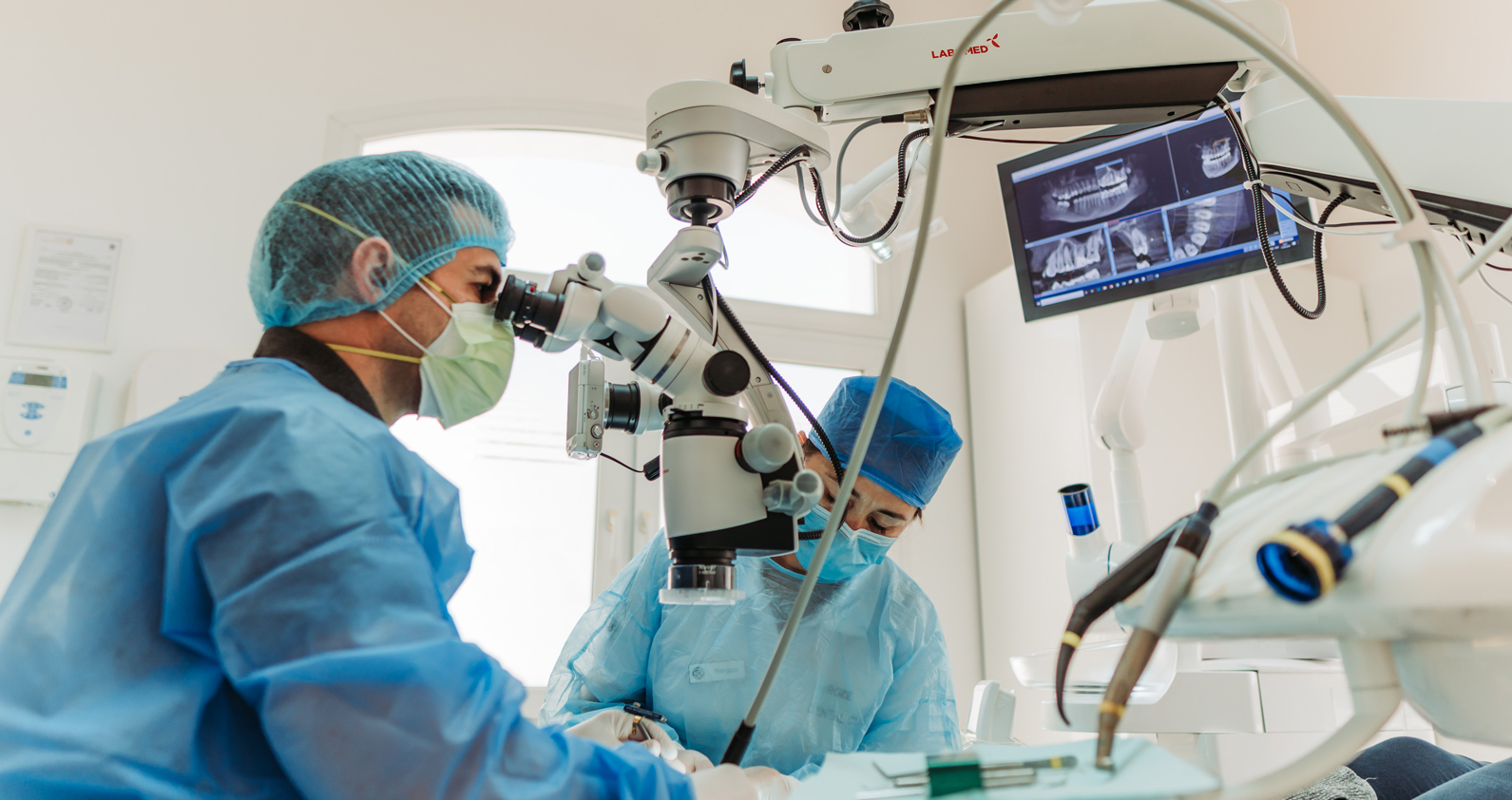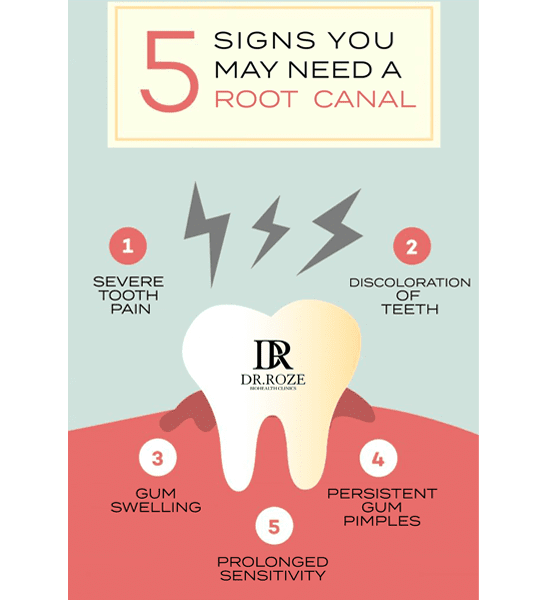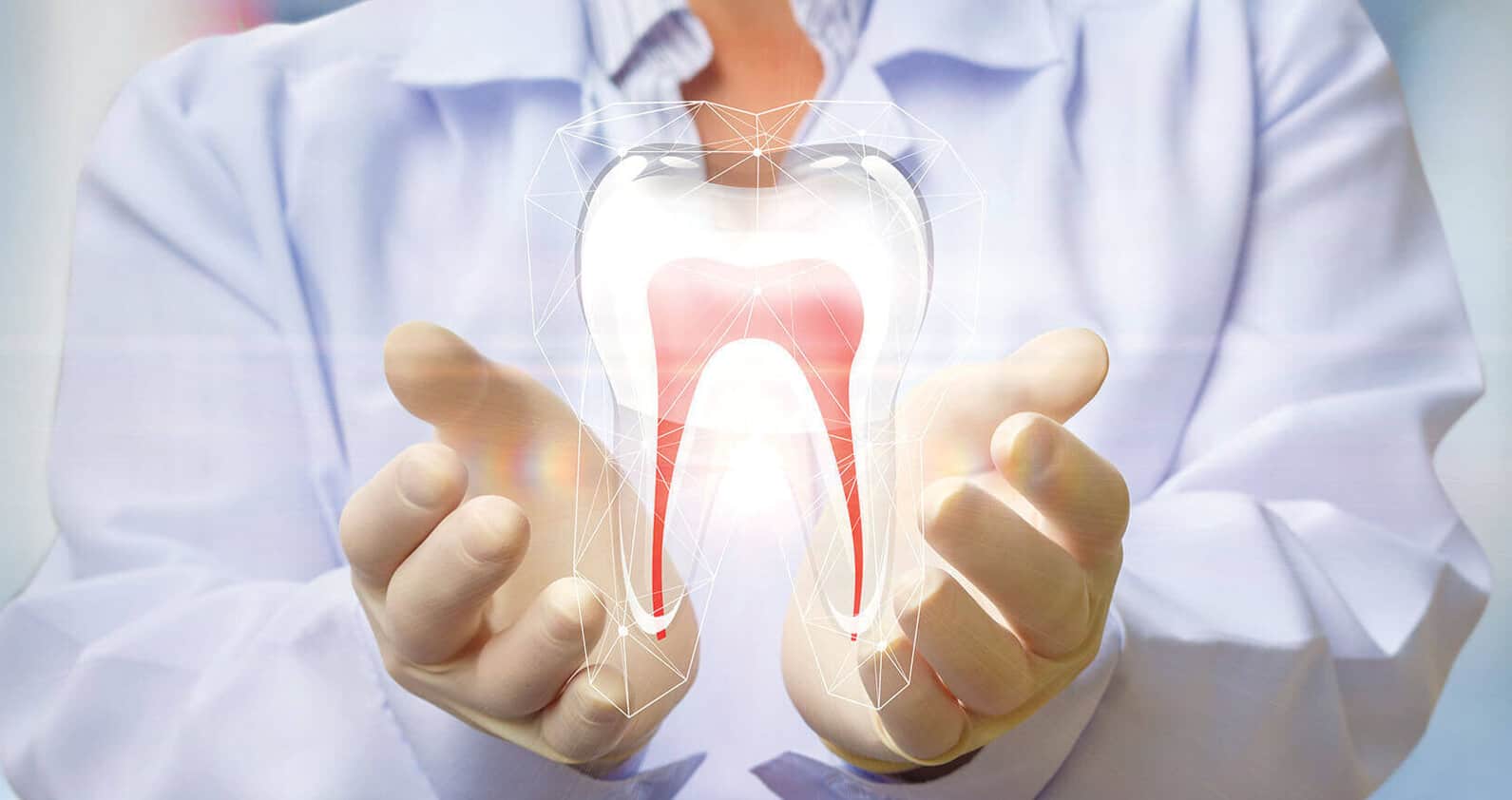Biological Endodontics

Endodontics is the branch of dentistry concerning dental pulp and tissues surrounding the roots of a tooth. “Endo” is the Greek word for “inside” and “odont” is Greek for “tooth.” An endodontic treatment, or root canal treatment, treats the soft pulp tissue inside the tooth. An endodontist is a dentist who specializes in saving teeth.
In the past year, root canal therapy has certainly made a splash in mainstream media. This is a great opportunity for us to connect with our collaborative, like-minded healthcare providers to advance patient education on alternative therapies.
Our ultimate goal is to treat the disease in a predictable, functional way that supports optimal systemic health.
Besides our own scientific knowledge and clinical expriences, we also listen to the public’s growing dissatisfaction with the current healthcare system (or what we prefer to call “sick care system”) that focuses on treating symptoms instead of addressing the root cause of these diseases.
Our functional apporach involves creating a custom plan with each of our patients. We take into account all variables when advising our patients, including overall systemic health and lingering systemic inflammation, function of current dentition, history of oral therapy, occlusion, material sensitivity, nutrition, and commitment to managing ongoing health.
With this in mind, we discuss with each patient the risks, benefits, and alternatives associated with both biological root canal therapy and biological extraction (and potential replacement) of the tooth in question.
1 . Biological Root Canal Treatment
What is a Biological Root Canal Treatment?
A root canal treatment involves:
- Removing and cleaning the inner part of the tooth, as a result of the infected pulp tissue. Blood vessels and nerves, called pulp, inside the tooth may be infected due to trauma and cavities in the teeth;
- Filling the canal with biocompatible materials.
The living part of the tooth is removed during a root canal procedure. However, the tooth remains with all its structures in a healthy relationship with the bone. The tooth simply loses its vitality or sensibility.
How do you know if a Root Canal is infected?

Book a consultation with our specialist endodontist if you are experiencing any of the following symptons:
- Pain
- Sensitivity to heat or cold
- Tenderness when chewing
- Discoloration of the tooth
- Swelling around the tooth
Ignoring these symptoms may lead to a serious condition, such as abscessing and severe infection.
If the pulp of your tooth is infected, it must be removed in order to stop the infection from spreading, causing serious problems and abscessing. A root canal treatment will also eliminate any pain.
The aim of a biological root canal treatment is to:
- Remove the infected pulp from the pulp chamber and root canals to eliminate bacteria;
- Fill these areas completely with a biocompatible material in order to prevent any problems, end the inflammation, and induce healing of the periapical area of the tooth;
- Heal and save the tooth.
At ROZE Biodental and BioHealth Clinics, we use the latest endodontic technologies to perform biological root canal treatments. A specially designed microscope gives our specialists a high level of visibility and laser technology allows for a bacteria-free treatment that is quick and easy.
Our biological root canal therapy includes the use of ozone dental therapy and bioceramics materials for effective disease management.
This procedure involves the ozone dental therapy in the cleaning of the root canals instead of a medical product adapted to commercial.
The use of ozone allows for deeper penetration of the dentinal tubules and accessory canals, thus providing an enhanced bactericidal impact in the tooth with biocompatible materials.
2 . Bioceramics Properties
Nowadays, as an alternative to the gutta percha filling material we use bioceramics, a biocompatible material with a well-established track record of being a reliable and durable canal-filling material.
A functional approach in dentistry promotes health and wellness instead of the treatment of disease.
- Bioceramics properties:
- Endodontic bioceramics are not sensitive to moisture and blood contamination. They are dimensionally stable, expand slightly on setting, and increase root resistance, making them one of the best sealing materials in dentistry.
- When set, they are hard and insoluble, ensuring a superior long-term seal. The pH at setting is greater than 12, which is due to the hydration reaction forming calcium hydroxide and later dissociation into calcium and hydroxyl ions.
- Mineral infiltration zone: Bonds to dentin directly due to the high alkalinity of calcium hydroxide forming a modification of dentine collagen with an intertubular diffusion of carbonate creating micro-tags.
- When bioceramic materials come in contact with tissue fluids, they release calcium hydroxide which interact with phosphates to form hydroxyapatite crystals inside of the dentina tubules. This property may explain some of the tissue-inductive properties of the material:
- Liberation of Ca2+ ions provoking the nucleation of apatite precursors.
- Promotion and activation of mesenchymal stem cells, periodontal ligament stem cells, and dental pulp stem cells, inducing the reparation of periapical tissue.
- Stimulates odontogenic and osteogenic cell proliferation.
- Odontogenic and osteogenic stem cells adhesion to bioceramic surface.
Our biological root canal treatment uses a mix of modern, traditional, and revised techniques and material to deal not only with the oral cavity, but also with the patient’s overall health and well-being. Key objectives of this approach are using the most biocompatible materials, while avoiding and eliminating toxins.
Once the tooth is restored with biological root canal therapy, we monitor the patient’s tooth closely and regularly. We may also inject ozone to manage any potential focal inflammation in the area.
If following therapy the patient experiences inflammatory symptoms with an undiagnosed source, then the tooth may be reevaluated.
There is no guarantee that this tooth (or an implant) will last a patients’ lifetime. Both of these are suboptimal options relative to maintaining a person’s natural dentition.
Our goal is to educate our patients and guide them on the best choice for their own health. In some cases, that includes biological root canal therapy. And in others, it includes removal of the tooth.

